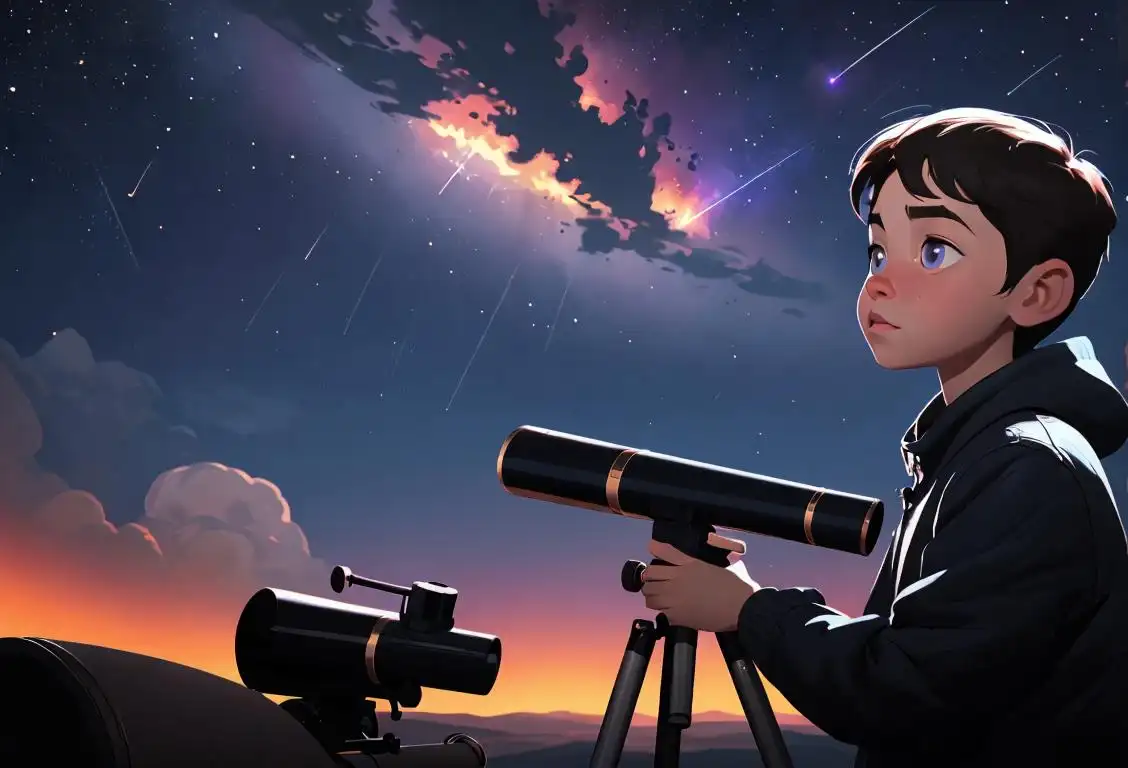National Meteor Day

Hey there, meteor enthusiasts! Get ready to celebrate National Meteor Day, a day dedicated to the fascinating world of celestial fireballs streaking through the sky. Whether you're a stargazer, an astronomy aficionado, or just someone who appreciates the cosmic wonders above, this day is perfect for marveling at the beauty and mystery of meteors. So grab your telescope and let's dive into the dazzling history and significance of National Meteor Day!
When is Meteor Day?
It's national meteor day on the 30th June.
The Origin of National Meteor Day
While it's unclear who exactly initiated National Meteor Day, one thing is for sure—people have been captivated by meteors for centuries. Meteors, commonly known as shooting stars, have played a significant role in folklore, science, and the human imagination. This national day serves as a reminder to look up and appreciate the awe-inspiring phenomenon that occurs far beyond our earthly confines.
How to Celebrate National Meteor Day
Celebrating National Meteor Day is as easy as looking up to the sky! Here are a few fun ways you can make the most out of this celestial celebration:
- Set up a stargazing party with your loved ones and spend the evening under the stars. Bring blankets, snacks, and a sense of wonder.
- If your area allows it, create a mini-campfire and share stories about celestial myths and legends while scanning the skies for shooting stars.
- Learn more about meteors by researching their composition and the science behind their radiant trails. Impress your friends with your newfound meteor knowledge!
A Fun Fact to Astonish You
Did you know that meteors are not only found on Earth? They have also been observed on other planets in our solar system, including Mars and Saturn. It seems even aliens enjoy their own meteor showers!
Tags: loved ones, astronomy, science, space, celebration
History behind the term 'Meteor'
860-890 AD
Hindu Astronomical Texts
During this period, Hindu astronomers developed a detailed understanding of meteors through their ancient astronomical texts. In these texts, meteors were referred to as 'Agnihotra', which translates to 'fire sacrifice'. They were considered to be celestial occurrences that held great significance in religious and cultural rituals.
300 BC - 400 AD
Greek Scholar Aristarchus
The Greek scholar Aristarchus proposed a scientific explanation for meteors in the 3rd century BC. He suggested that meteors were atmospheric phenomena caused by cosmic material entering Earth's atmosphere and igniting due to friction. The term 'meteor' originates from the Greek word 'meteōron', meaning 'things high up' or 'hanging in the air'.
1656 AD
First Recorded Observations
The first recorded observations of meteors were made by astronomer and mathematician Ole Rømer in 1656. He documented his observations of the Leonid meteor shower, noting their periodicity and association with Comet Tempel-Tuttle. This marked a significant milestone in the scientific understanding of meteors and their celestial origins.
1803 AD
Father of Meteoritics
In 1803, German scientist Ernst Chladni published a groundbreaking book called 'Über den Ursprung der von Pallas gefundenen und anderer ihr ähnlicher Eisenmassen' ('On the Origin of the Stony Meteorites and Iron Masses Similar to Them'). Chladni is often regarded as the 'Father of Meteoritics' for his work on meteorites and meteorite impacts, which significantly advanced the study of meteors and their properties.
1900s
Meteor Science Advances
Throughout the 1900s, advancements in technology allowed for more comprehensive studies of meteors. Instruments such as radar systems and cameras enabled scientists to track and analyze meteor showers, meteoroids, and their trajectories with greater precision. This led to further discoveries about their composition, origins, and atmospheric entry phenomena.
Did you know?
Did you know that meteors are not only found on Earth? They have also been observed on other planets in our solar system, including Mars and Saturn. It seems even aliens enjoy their own meteor showers!Tagged
loved ones celebration astronomy science spaceFirst identified
29th June 2015Most mentioned on
30th June 2015Total mentions
301Other days
Meteor Day
Graduates Day
Ugly Sweater Day
Wine And Cheese Day
Whipped Cream Day
Cake Decorating Day
Twins Day
Cheese Pizza Day
Senior Citizens Day
Dementia Carers Day








